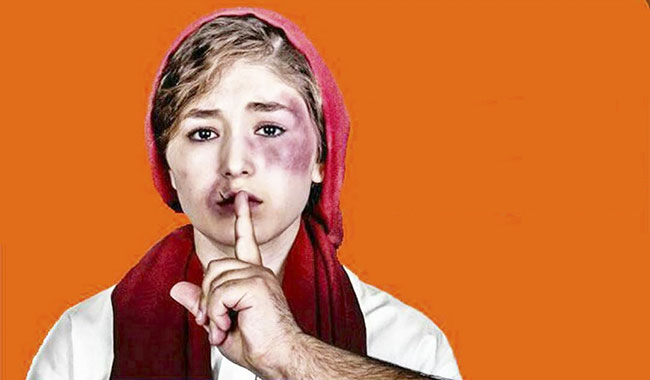The rape of five women, anti-trafficking activists, in India; six-year-old Zainab Ansari in Pakistan and five-year-old Afghan girl Bahara in Iran, which are highly outrageous to the collective conscience, are the stories of violence against women, violation of law and moral decline and prevalence of gender discrimination in human societies.
The stories of rape make frequent headlines around the world despite the human rights discourse. Women fall victims to gang rape simply for their gender distinction. That is, their inherent rights and dignity are trampled upon for being women.
The shocking events of raping women and female children in modern world, in which all nations and individuals claim to live a civil life and exercise democracy, will not only numb one’s feelings but also mistrust them in the discourse of democracy and human rights. These episodes will fill the air with a strong sense of disappointment.
Although the principle of “non-discrimination” on the grounds of one’s color, race, gender, etc. is accepted by national laws and international instruments, women are still vulnerable to mistreatment, rape and violence on the basis of their gender. A number of women are not able to exercise their inherent rights and dignity freely. Their rights and dignity are violated and their freedoms are curtailed in many parts of the world for their gender.
Women suffer in many ways and they are susceptible to social, cultural and religious issues. For instance, if there are cultural restrictions, women are the first to encounter the consequences; if there are religious prohibitions, the issue of women’s dressing will be the first to be affected.
Worst of all, women are also exploited by radical ideologues and militants in modern era. Take the Baghdadi-led self-proclaimed Islamic State (IS) group for example, on the one hand a number of women were employed to satiate the carnal desire of the militants, on the other hand, scores of Yazidi women were raped for practicing particular beliefs contrary to that of the militants.
The suffering of women continues. A pregnant Muslim woman was kicked in the stomach by two men, who attempted to remove her headscarf and cut her hair, in France on 13 June 2013, according to Pew research, and suffered a miscarriage. By contrast, several women were attacked with paintball guns in Chechen capital of Grozny for appearing in public without wearing headscarves.Besides all other sufferings, laws and policies regarding the way of dressing also limit the freedoms of women in many countries. For example, many European countries, including France and Belgium, enforced laws to prohibit people from covering their faces in public places. On the contrary, in the Middle East and North Africa, four countries – Iraq, Libya, Saudi Arabia and Sudan – had laws requiring women to wear religious attire. In Kenya, some government schools prevented girls from attending classes if they wore headscarves or other religious attire. Not only Muslims but also members of the Akorino group, which combines Christina and traditional African styles of worship, were affected by this policy of Kenya. To put it succinctly, a research carried out by Pew shows that within two years, 2012 and 2013, women were harassed for wearing religious dress in 33 ofthe 198 countries (17%) in which research was carried out by Pew. On the other hand, women were harassed for not abiding by religious dress codes in 23 of the 198 countries (12%). There were also five countries (3%) in which both types of harassment occurred within the two-year periods.
All the aforementioned issues show that women are still subject to gender discrimination and patriarchal mindsets and the cycle of violence against them continue both in traditional and modern societies.
According to international instruments, “All human beings are born free and equal in dignity and rights” and their inherent and inalienable dignity and rights must be respected and protected. Meanwhile, “freedom of religion” is highly cherished in international instruments and it is believed that all people are free to practice their religion and religious values, including their religious symbols and attire, and forcing one to discard their religious attire is against the international principle based on the recognition of the freedom of religion.
It is hoped that violators of human rights, mainly women’s rights, will be prosecuted fairly and all individuals and nations will practice upon international principles and listen to the call of their conscience. It is further hoped that we will live in a civil society in which all men and women enjoy their rights, dignity and freedoms equally and women no more fall the victims of violence or gender discrimination.
Home » Opinion » Women – Subject to Violence and Gender Discrimination
Women – Subject to Violence and Gender Discrimination
| Hujjatullah Zia

